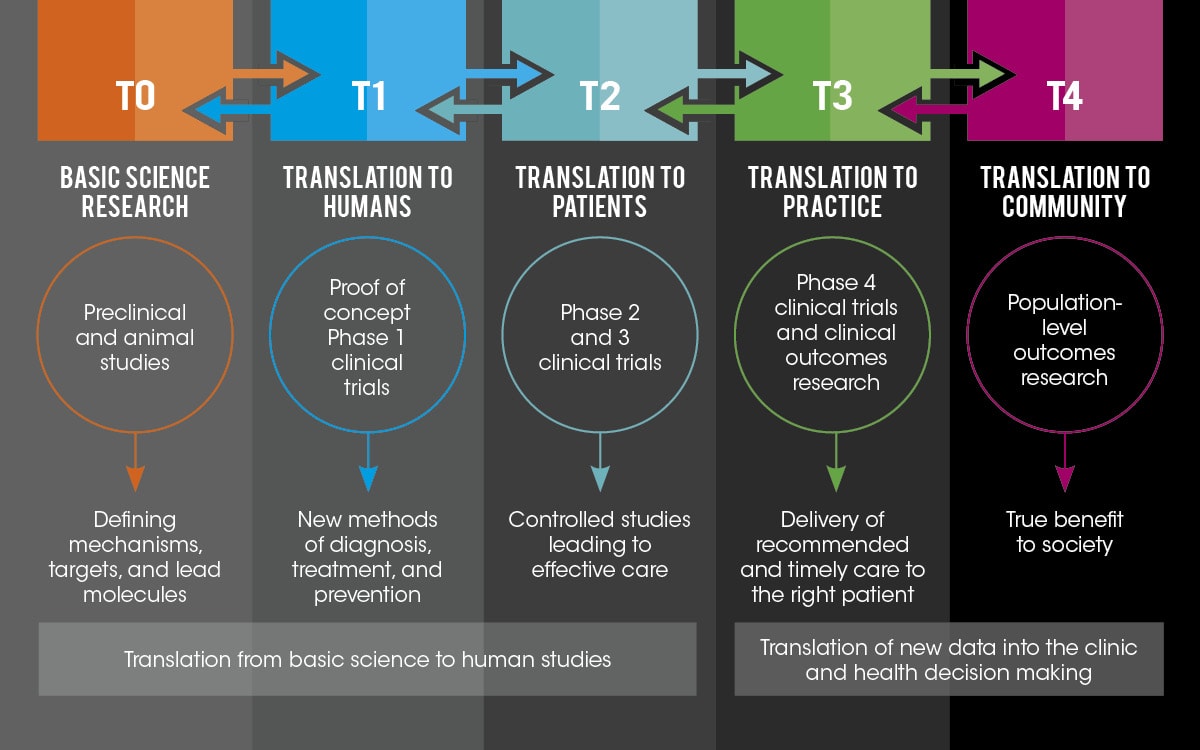The National Center for Advancing Translational Sciences (NCATS) explains more about translational science in the video below.
Translational research seeks to produce more meaningful, applicable results that directly benefit human health. The goal of translational research is to translate (move) basic science discoveries more quickly and efficiently into practice. At TRI we provide numerous targeted resources to address barriers that can curb productivity and the swift translation of research into new health care advances.
Translational research:
- Encourages and promotes multidisciplinary collaboration among laboratory and clinical researchers
- Incorporates the desires of the general public, with communities being engaged to determine their needs for health innovation
- Identifies and supports the adoption of best medical and health practices
Translational research is often classified by which stage of translation (from beginning research to societal application and impact) it falls into. The T Spectrum (Translational Spectrum) below illustrates the different stages of translational research.

NCATS, which supports the work of TRI, studies translation on a system-wide level as a scientific and operational problem. The NCATS website states that:
- Translation is the process of turning observations in the laboratory, clinic and community into interventions that improve the health of individuals and the public — from diagnostics and therapeutics to medical procedures and behavioral changes.
- Translational science is the field of investigation focused on understanding the scientific and operational principles underlying each step of the translational process.
